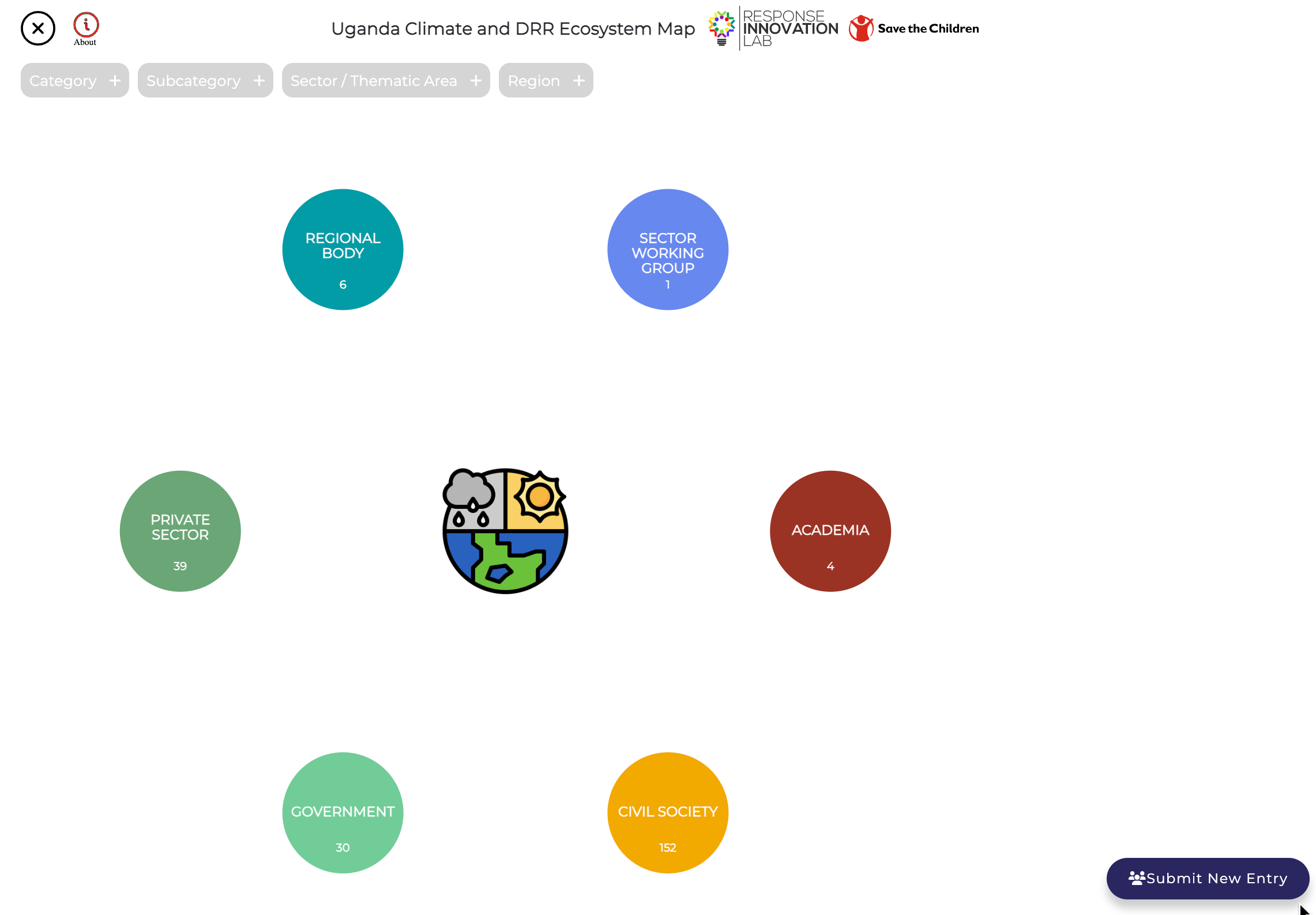Climate and Disaster Risk Reduction Ecosystem Map
The Uganda Climate and Disaster Risk Reduction (DRR) ecosystem map is one of the resourceful tools developed by Uganda Response Innovation Lab (U-RIL) with support from Save the Children. The map was developed as a key output of the Climate Adaptive Programming and Disaster Risk Reduction Stakeholder Mapping project in Uganda with an overall objective to build knowledge, capacity, and understanding of the Ugandan Climate Change Action context and Climate Adaptive programming options through stakeholder mapping, child and youth consultations, staff learning, and evidence/impact documentation.
This map is a live tool that is regularly updated, if your organization is not yet represented or you wish to request a change/update to the information about your organization, please fill a request through the form link attached to the map. Click on this link to access the map.
SMILE -- System for Management of Information and Lab Evidence
SMILE is an online searchable directory of humanitarian innovation system actors and innovations in Uganda based on information gathered by the U-RIL teams and content provided directly by organisations and innovators through online forms. SMILE also includes some basic analytical tools that help users better understand the composition of the humanitarian innovation ecosystem in Uganda and U-RIL’s work.
You can access SMILE through this link (click on the Home/Dashboard option)
Settlement-Level Actor Mapping (SLAM)
SLAM is a mapping tool developed by the U-LEARN programme and hosted by Charter 4 Change. The searchable directory covers a wide range of organisations with a presence in refugee settlements throughout Uganda.
Click here to be taken to the tool on the U-LEARN website
The Uganda Innovation Ecosytem Map
The Uganda Response Innovation Lab has developed a dynamic map of the local ecosystem to better identify actors, innovators, in the response and help them connect with each other. The map is comprehensive of the humanitarian and social impact innovation stakeholders and supporters in the innovation ecosystem. While most organizations included have a physical presence in Uganda, some are based externally but have established connections to this ecosystem.
This map is a live tool that is regularly updated thanks to the research conducted by the RIL and the connections with partners.
Mapping of Innovation Hubs
Innovation hubs are connecting young entrepreneurs, programmers, designers, and investors and facilitating growth and collaborations across the innovation ecosystem. The Response Innovation Lab has set up an interactive platform to empower innovators with innovation support which highlights innovation hubs, accelerators, and co-working space’s location and hours.
The Education Technology Ecosystem Map
The Education Technology (EdTech) Ecosystem Map looks at all stakeholders across the ecosystem to provide an overview of trends in EdTech projects and solutions throughout the country. The information is based on a selection and review of 36 solutions. EdTech is the use of technology for any Information Communication Technology (ICT) product - from radio to digital apps and tools - where the primary intention is to support the delivery of educational programs and improve outcomes.
EdTech is expanding quickly through a lot of small-scale solutions developed by Ugandan social enterprises and NGOs. As the Ministry of Education takes steps towards the preparation of an ICT in Education Policy, a sound stakeholder mapping was deemed a useful resource for its development.
In addition, with a growing interest from the Government of Uganda to invest in an ICT-enabled economy, an ICT-literate workforce is required. EdTech is seen as a way to develop digital literacy and drive overall (economic) literacy. There is also significant interest from the private sector and education donors to contribute resources to the EdTech space in Uganda.
>>> Click to see the interactive EdTech Ecosystem Map.
>>> Click here to a report published on the EdTech Ecosystem.






